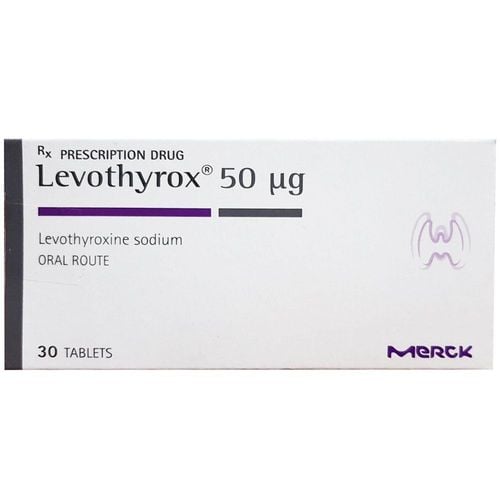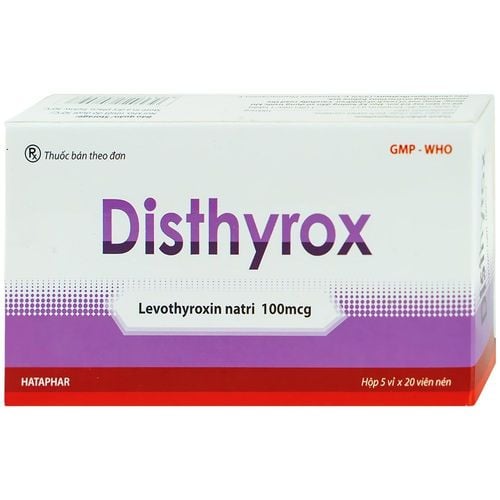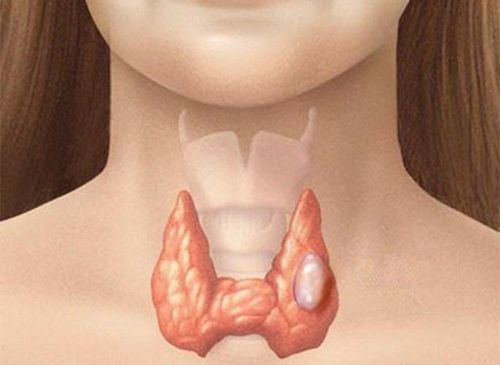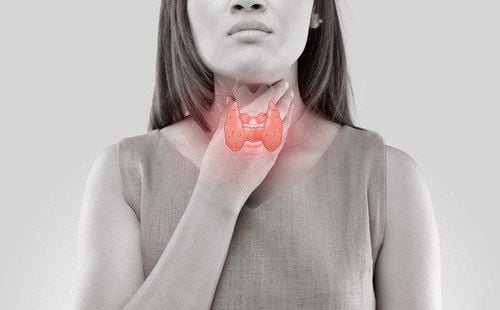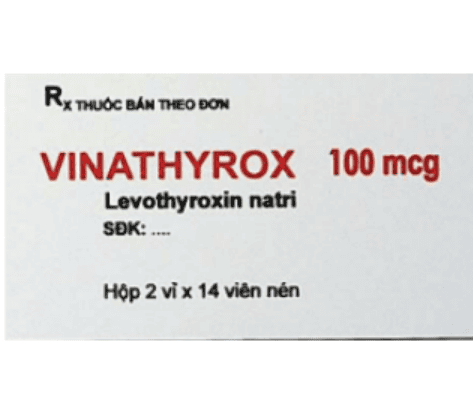This is an automatically translated article.
The article was professionally consulted with General Internal Medicine Doctor - Department of Examination & Internal Medicine - Vinmec Nha Trang International General Hospital.As one of the important endocrine glands, thyroid hormone plays a role in regulating many growth and development activities of the body. When thyroid function is disturbed, there is a risk of diseases such as hypothyroidism, hyperthyroidism, benign thyroid nodules, thyroid cancer....
1. What is the thyroid gland?
The thyroid gland is located on either side behind the larynx and in front of the trachea, consisting of glandular sacs 150 to 300 microns in diameter made up of glandular cells. The secretions from these cells are contained in the follicles. The two hormones thyroxine and triiodothyronin of the thyroid gland have certain effects on the body's metabolism, while calcitonin hormone helps calcium metabolism take place more smoothly.Hypothyroidism can slow down the rate of metabolic reactions and conversely, when the thyroid is overactive, it can increase the body's reaction rate.
Thyroid hormone function :
Impact on the activity of the mammary glands and gonads; Helps to increase blood flow through the heart, increase heart rate, increase respiration to provide oxygen for metabolism in organ tissues; Increases cell activity, enhances glucose metabolism and enhances lipid metabolism to create energy for the body to function, helping to lose weight effectively; Helps to increase the activity of the brain and nervous system; Effects on growth and development in the body; Maintains a stable level of calcium in the blood.
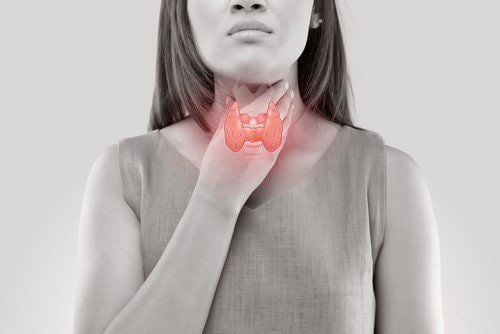
Tuyến giáp là gì?
2. Hormones secreted by the thyroid gland
In the normal functioning of the body, the thyroid gland will produce hormones including: thyroxine hormone, triiodothyronin hormone and calcitonin hormone. In particular, 2 hormones thyroxin and triiodothyronin have a particularly important role in the body's development and energy metabolism, Calcitonin (thyrocalcitonin) is a hormone that regulates calcium and phosphorus metabolism.3. Functions of the hormones thyroxine and triiodothyronin (T4 and T3)
Regulate the growth of the body, the development of the nervous system, maintain the calcium and oxygen levels in the blood at a stable level, increase the metabolic activity in the cells, enhance the metabolism of fats and glucides to help the muscles. effective weight loss. In addition, these two thyroid hormones also help to increase the metabolism of the body such as the heart, liver, and kidneys, and play a particularly important role in generating heat and regulating body temperature.When the function of hormones T3, T4 works poorly, the heart rate will slow down, the amount of blood and oxygen entering the body will be lower, the basal metabolism will decrease, accompanied by manifestations of hypothermia, slow pulse, hair loss, decreased intestinal motility, health, intellect affected,
4. The synthesis and secretion of thyroid hormone
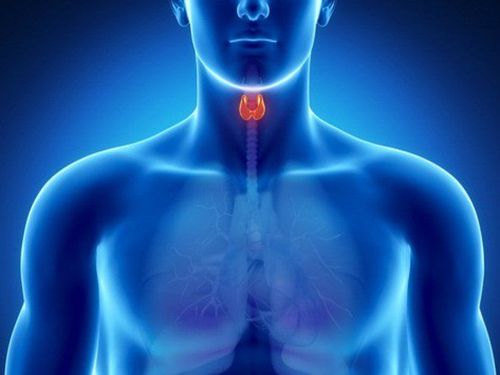
Tuyến giáp và các hormon tuyến giáp có vai trò vô cùng quan trọng trong hệ thống chuyển hóa và hoạt động của toàn cơ thể
When Iodur enters the colloid of the thyroid gland, it is oxidized back to iodine. Iodine attaches to the 3rd position of the tyroxine molecule and forms Monoiodo tyroxine (MIT). Iodine binds to positions 3 and 5 of the tyroxine moiety to form Diiodo tyroxine (DIT). When 2 molecules of DIT combine to form T4 hormone and 1 molecule of MIT combines with 1 molecule of DIT to form T3 hormone.
After being synthesized by the hormone T3 T4 will be released into the blood and exist in 2 forms:
First: The form that binds to plasma proteins mainly with TBG (thyroxine binding globuline), a part that binds to TBA and TBPA ; Second: Free form FT3 (Free Triiodothyroxine) FT4 (Free Thyroxine), only accounts for a small part of T3 and T4 but shows a very clear physiological function. The circulating T3 T4 hormone in the blood will depend on the carrier proteins, if the amount of the transport protein changes, the concentration of T3 T4 hormone will change accordingly. On the other hand, the free form of T3 T4 hormone will not depend on the carrier protein and only Free T3, Free T4 is responsible for the biological activity of the thyroid gland. Therefore, measuring the levels of Free T3, Free T4 in the diagnosis of thyroid disease will give more reliable and accurate results.
The thyroid gland and thyroid hormones play an extremely important role in the metabolic system and the functioning of the whole body. Therefore, periodic thyroid hormone testing is very necessary to know the operation, formation and development of the nervous system as well as early detection of problems for timely treatment plans.
To check the functioning of the thyroid gland and detect possible thyroid problems early, the best option is to attend a hospital screening.
The package of screening and screening for thyroid diseases provided by Vinmec International General Hospital will help you check thyroid function, screen for and early detect common thyroid diseases such as simple goiter pure, hyperthyroidism, hypothyroidism, thyroiditis, thyroid nodules, ... to give timely intervention measures, protect the best thyroid health for you.
Please dial HOTLINE for more information or register for an appointment HERE. Download MyVinmec app to make appointments faster and to manage your bookings easily.




